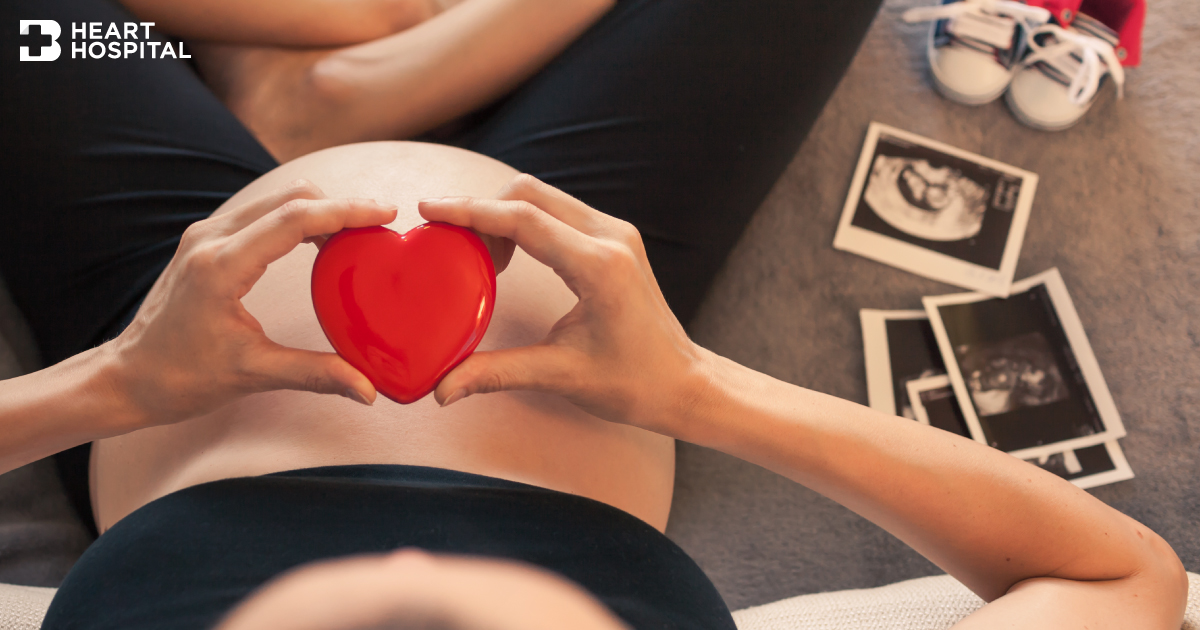Can women with heart valve disease be pregnant safely?

Among heart valve disease, mitral stenosis (MS) is the most common manifestation of rheumatic heart disease found in pregnant women. It is one of the most common causes of maternal death from cardiac causes worldwide. Whether or not to get pregnant safely in women diagnosed with heart valve disease, it entirely depends on the disease severity and individual conditions of each patient.
Severity level of heart valve disease in pregnant women?
Primarily based on presenting signs and symptoms, severity can be mainly classified into 4 classes:
- Class I: No limitation of physical activity. Ordinary physical activity does not cause fatigue, palpitation or dyspnea (shortness of breath).
- Class II: Slight limitation of physical activity. Comfortable at rest. Ordinary physical activity with exertion results in fatigue, palpitation or dyspnea (shortness of breath).
- Class III: Marked limitation of physical activity. Comfortable at rest. Less than ordinary activity causes fatigue, palpitation or dyspnea.
- Class IV: Unable to carry on any physical activity without discomfort. Symptoms of heart failure at rest. If any physical activity is undertaken, discomfort increases.
If patients have experienced the severity class I or II, to be pregnant is allowed but only under a close supervision of cardiac specialists and obstetricians. Cardiac output is defined as the volume of blood being pumped by the heart. Since during pregnancy, cardiac output increases to a similar degree as the blood volume. During the first trimester cardiac output is up to 40% higher than in the non-pregnant state. Cardiac output starts rising from week 8th and reaches its peak during the middle of pregnancy period. Nevertheless, if patients fall into class III or IV, it is more likely to develop life-threating complications, thus effective and treatments with high degree of safety must be initially provided by cardiac specialists before pregnancy begins.
Non-pregnant patients with heart valve disease
Before considering being pregnant in patients diagnosed with heart valve disease, valve replacement is highly recommended. A minimally invasive valve replacement is a surgery to replace a poorly working valve with an artificial valve. Based on artificial heart valves, there are 2 major types:
- Mechanical valve: These valves are made of strong durable materials. They are the most long-lasting type of replacement valve. However, patients always require a blood thinning medication throughout the remainder of their lives. The blood thinner keeps clots from forming, preventing clot lodging in the valve flaps or hinges and causing a valve malfunction. However, medication might cause undesired effects and teratogenic effects to the babies including disability and death.
- Biological valve (tissue valve or bioprosthetic valve) Biological valves are created from animal donors’ valves or other animal tissue that is strong and flexible such as cow and pig. Chances of having blood clot is considerably low thus long-term use of blood thinner medication is not required. However, biological tissue might potentially induce immune response to act against the valve, resulting in scar tissue and calcification. Eventually, valves might not be able to function properly. More importantly, tissue valves can last 10 years. In patients with tissue valve replacement, the need for additional surgery or another valve replacement later in life is highly likely. For each surgery in which the valve must be replaced, careful considerations should be given to durability and medication options as well as possible risks.
Pregnant patients with heart valve disease
During pregnancy, if patients have developed heart valve disease, a close monitoring from cardiac specialists and obstetricians is highly needed. If patients have experienced moderate to severe symptoms, treatment plan is primarily determined by gestational age. In early pregnancy (during the first 2-3 months), an early abortion is mainly considered.However, if the gestation age is over 5 months, certain medications will be prescribed to attenuate the severity degree until baby reaches 36 weeks. Then cesarean delivery will be performed to save both baby’s and mother’s lives. More importantly, potential risks during pregnancy might include greater chances of miscarriage or intra-uterine fetal death. In addition, prescribed medications might produce adverse reactions to the babies, affect the fetal growth and development. The major determinant is the severity of symptoms that affect mother’s health. The ultimate goal is to rescue both lives safely.
Pregnancy after valve replacement
In case that patients have valve replacement with biological valve, no blood thinner drug is required and patients can continue living without special cautions. But if it is mechanical valve, oral blood thinning drugs should be switched to injection form which might impair the fetal growth and development. After valve replacement and patients do not notice that they are pregnant especially during the first trimester, oral blood thinners might affect the fetus, leading to birth defects or developmental disability.
Taking good care of mother’s health
Health check-up before pregnancy remains essentially vital. It greatly helps to identify possible risks and early detect abnormalities prior to be pregnant. Treatment plan can be given appropriately, resulting in healthy life of both mother and babies.
Packages & Promotions
More

